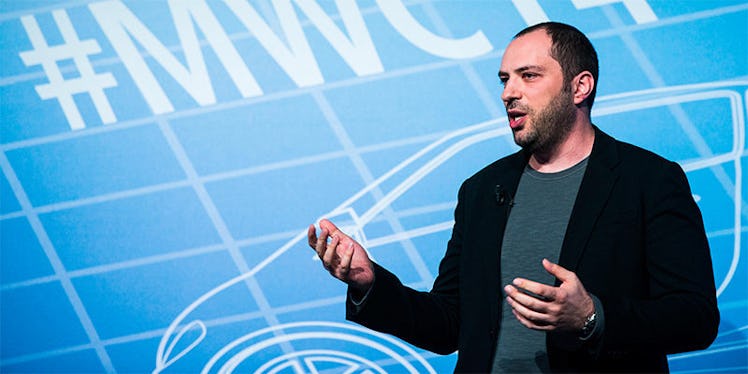
How WhatsApp Demonstrates That Rejection And Perseverance Should Only Be Fuel For Your Success
Amidst the shock that ensued last week after Facebook announced that it had acquired WhatsApp for a fee of up to $19 billion, peeling away at all the layers of a fascinating story became a thorough task.
There was the price tag itself: A $19 billion acquisition would be the biggest Internet deal since 2001's Time Warner/AOL merger, many noted. Then there were the metrics.
How could a company that recorded just $20 million in revenue be valued so highly? Perhaps the aspect of this narrative that pulled at heart strings the most was the rags to riches story of WhatsApp CEO Jan Koum, who signed the deal that made him an instant billionaire on the door of the welfare office where he used to collect food stamps.
But the most intriguing storyline to consider, and the most thought-provoking, is the one that details the efforts of WhatsApp cofounders Koum and Brian Acton to find "real jobs," before founding their company.
In what would become a twist of fate for the ages, Acton was turned down by Twitter in May 2009 and by Facebook, along with Koum, in August of that year.
Facebook turned me down. It was a great opportunity to connect with some fantastic people. Looking forward to life's next adventure. — Brian Acton (@brianacton) August 3, 2009
Got denied by Twitter HQ. That's ok. Would have been a long commute. — Brian Acton (@brianacton) May 23, 2009
"We're part of the Facebook reject club," Acton is quoted as saying by Forbes.
Given the events that transpired last week, it's remarkable to think that an adventure that ended up with one giant company making two cofounders billionaires started only because said giant turned them down in the first place.
What's even more fascinating, though, is the manner in which Acton seemed to have received the news of his rejection from the two social networks.
Far be it from anyone to state exactly what was going through the WhatsApp cofounder's mind at the time -- none of us are mind readers -- but using Acton's tweets as an indicator of the type of mentality with which he approached these setbacks suggests that he was able to take them in stride.
They suggest that Acton was determined to keep a positive mind, to move forward and to keep what's in the past exactly where it belongs. If there was any major disappointment to be felt, Acton's tweets, never mind every interview he's given since, implies that he was not interested in dwelling on the negatives.
Instead of focusing on the fact that he, as a veteran of the tech industry (Acton was Yahoo! employee no. 44) was rejected by the relatively new kids on the block, the WhatsApp cofounder was keen on taking away the good points of his experience, noting his next move as an "adventure" rather than a miserable fight back to the top.
Without the apparent enthusiasm with which Acton handled his setbacks, if they can even be regarded as such, it's hard to imagine he would have been able to link up with Jan Koum to create a company that seemingly required a whole lot of optimism.
It's difficult to envision Brian Acton, and Jan Koum for that matter, being able to commit the type of focus, concentration and belief to a project that made the pair the anomaly of the tech world (WhatsApp is one of the few companies adamantly refusing to generate extra revenue for its pockets.) if the two had chosen to dwell on being denied a chance to hang with the big boys.
The result of the two cofounders' admirable approach, combined with hard work, is an incredible turn in fortunes.
Instead of earning a six-figure, maybe even seven-figure, salary from Mark Zuckerberg, Jan Koum was made an instant multi-billionaire with the stroke of one pen while Acton is certain to have been handsomely paid himself.
Their stories, though, do not just provide good reading material to tickle one's fascination. As is the case with most unique stories of success, there are lessons to take away from Brian Acton and Jan Koum's comeback from Facebook rejects to the social network's most prized assets.
When faced with rejections, setbacks and/or disappoints, there are few reasons not to come out of such experiences with a positive mindset. For one, our rejections should only serve as fuel to propel us towards future success, and give us one more thing to prove.
And, at the very least, one thing is almost always certain. Every bit of sand in the hour glass of the days of our lives that is devoted to feeling sorry for ourselves or dwelling, in any capacity, upon disappointment is a waste. A positive mindset taken after rejection can only help us move one, from what cannot be changed.
On to the next, and hopefully bigger, one.